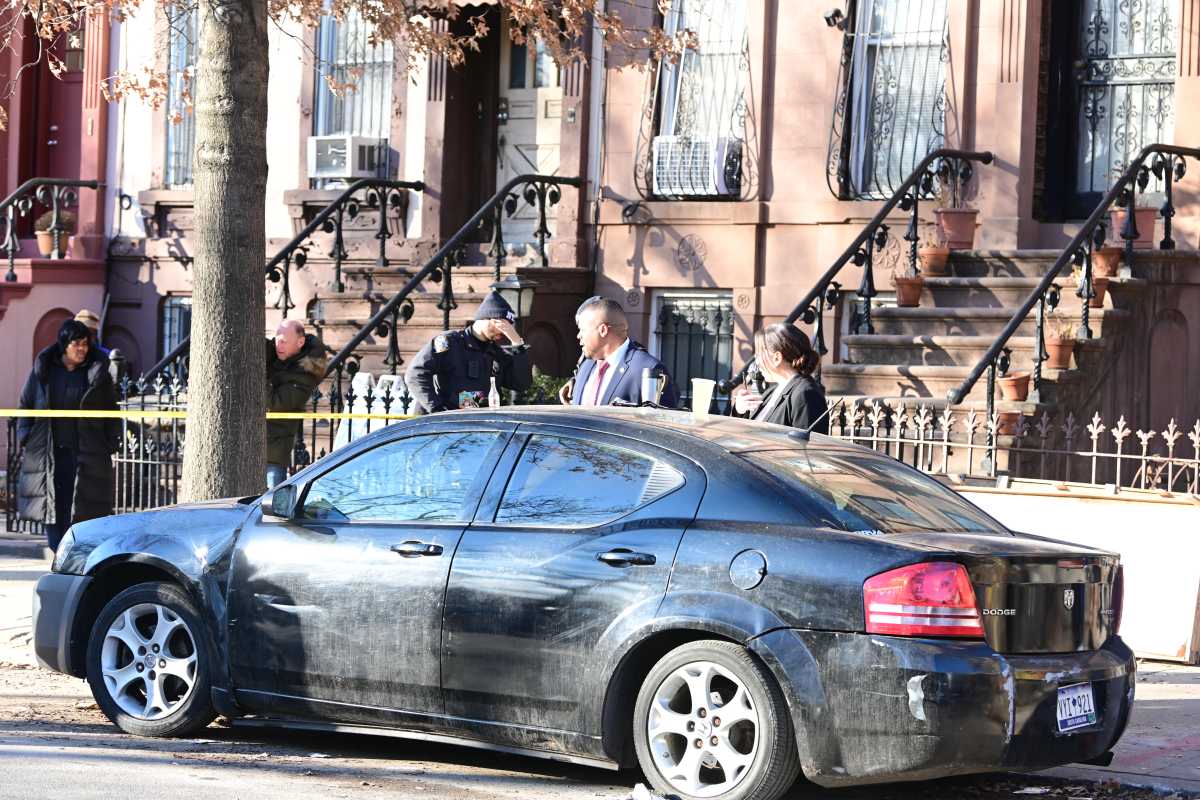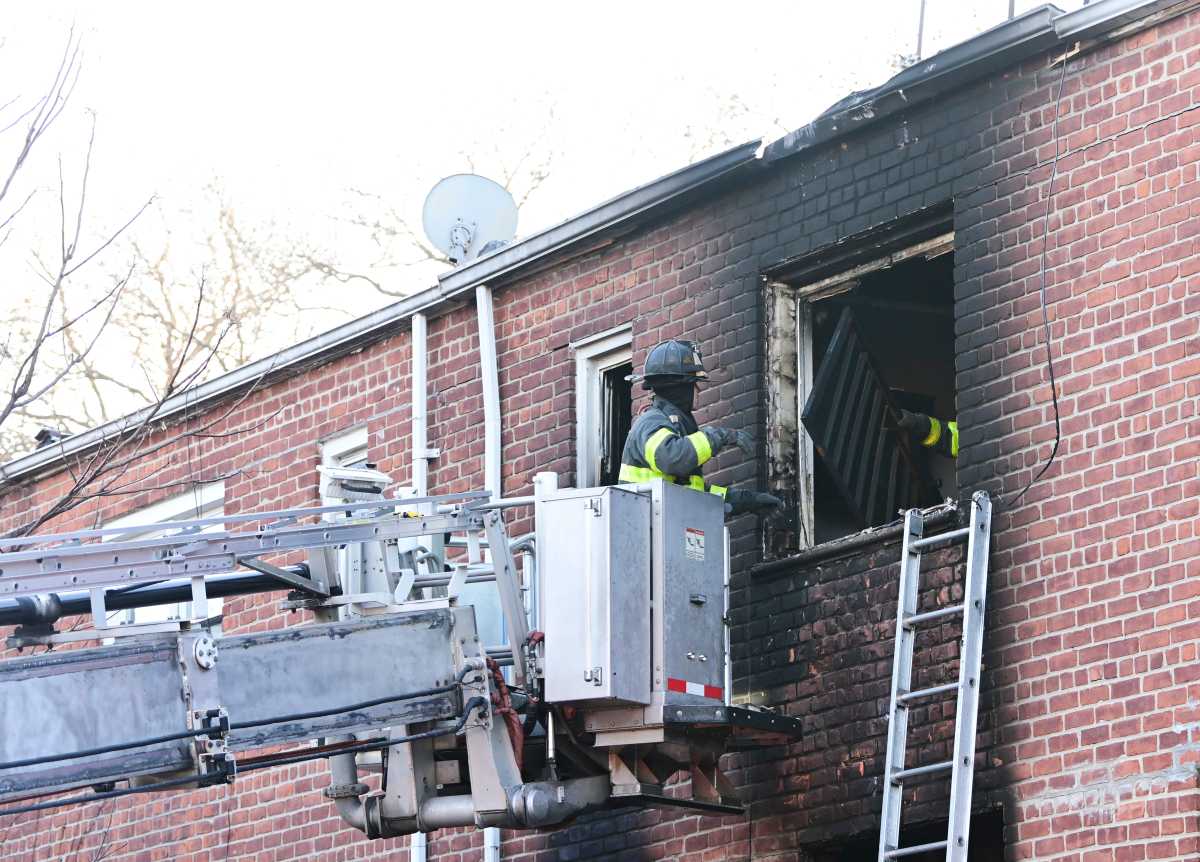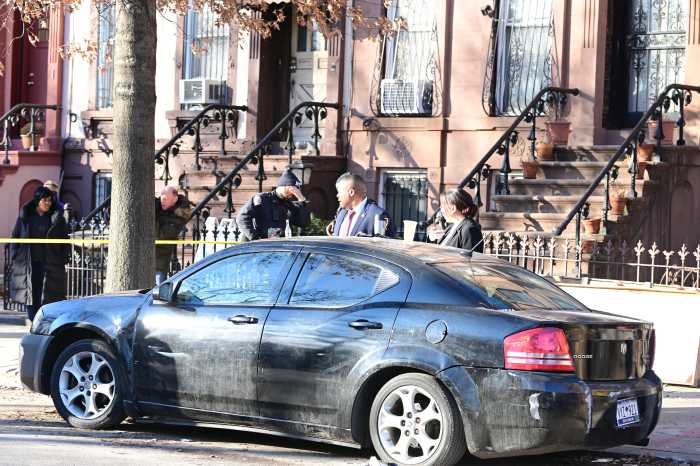In an effort to protect tenants from landlord harassment, the City Council is considering 18 bills that would expand the city’s oversight of building owners and increase penalties levied against bad actors, particularly those aiming to replace renters with higher-paying ones.
Councilman Robert Cornegy Jr., who chairs the body’s housing committee, gave a grim evaluation of current tenant protection protocols at a Thursday hearing.
Predatory landlords have the “advantage of working within a city that often, sadly, provides inadequate oversight,” Cornegy said. The package of bills, he said, was “aimed at preventing displacement by predatory landlords, addressing the housing court eviction machine and ensuring that the administration does its part to prevent harassment and mistreatment that causes tenants to move out of their homes.”
The suite of legislation focuses on several aspects of rent regulation the city can control, although the bulk of the rules are set by the state. The measures would require that owners submit copies of lease buyout agreements with the city within 45 days, that the city deny building permits to some residences with housing code violations and that it start penalizing firms employing anyone who breaches building plan protocols, rather than punishing the offenders alone.
The proposals come after affordable housing advocates have highlighted how some landlords have managed to effectively push out low-income tenants with endless construction. They contend the goal is often to deregulate a rent regulated unit, so it can be renovated and leased at market rate.
One prominent example of this practice involved President Donald Trump’s son-in-law and senior adviser Jared Kusher, who was CEO of Kushner Companies when the real estate company falsified documents for more than 80 work permits at 34 properties between 2013 and 2016, according to an Associated Press report citing work by the Housing Rights Initiative. That tenants rights group is now teaming up with lawyers to sue on behalf of Kushner’s tenants.
“This legislative package is CPR for an affordable housing system in cardiac arrest,” said Aaron Carr, founder of Housing Rights Initiative. “Until Albany musters the political will to operate on the rent stabilization program, the city must employ every tool at its disposal to keep it alive.”
The Rent Stabilization Association, which represents landlords of rent regulated housing, issued a memorandum in opposition to seven of the bills, stating that, “The solution is enforcement, not more laws.”
Leaders from the city Department of Buildings and Department of Housing Preservation and Development largely supported the measures, but pushed back on some provisions, saying they had recently enacted changes that would curb concerning behavior.
“The use of construction to harass tenants is an absolutely dreadful practice,” said Buildings Commissioner Rick Chandler, before noting that, as part of a larger task force on tenant harassment, his agency conducted 2,300 inspections and issued 1,600 summonses last year.
He added that the department has prioritized inspections, sped up complaint response times, audited work more often and will soon begin revoking permits for building owners who have over $25,000 in unpaid fines.
Chandler said his team was “busy enforcing a dozen laws enacted in 2017, which are intended to combat this very issue.”
But Kat Meyers, a lawyer at Legal Aid Society, said tenant harassment is “still rampant.” She said her organization, which provides counsel to low-income New Yorkers, is seeing the problems worsen, particularly for rent regulated tenants in recently rezoned areas, where there is a market incentive for landlords to raise rents.
Lawmakers were largely hopeful about the next round of legislation before them.
“It seems to me the city is moving in the right direction, a more proactive direction,” said Councilman Ritchie Torres. “More efforts have to be undertaken to crack down on systemic abuse and fraud.”


































